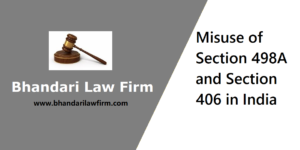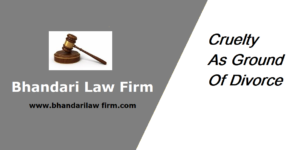Rules and Regulations in Cheque Bounce Cases
The Cheque Bounce Is A Criminal Offence And Is Punishable By Imprisonment Up To Two Years Or With Monetary Penalty Or With Both. Cheques are used in almost all transactions such as re-payment of loan, payment of salary, bills, fees, etc. A vast majority of cheques are processed and cleared by banks on daily basis. Cheques are issued for the reason of securing proof of payment. Nevertheless, cheques remain a reliable method of payment for many people. On the other hand, it is always advisable to issue crossed “Account Payee Only” cheques in order to avoid its misuse. Cheque bounce lawyers chandigarh
A cheque is a negotiable instrument. Crossed and account payee cheques are not negotiable by any person other than the payee. The cheques have to be deposited into the payee’s bank account.
Legally, the author of the cheque is called ‘drawer’, the person in whose favour, the cheque is drawn is called ‘payee’, and the bank who is directed to pay the amount is known as ‘drawee’.
However, cases of cheque bounce are common these days. Sometimes cheques bearing large amounts remain unpaid and are returned by the bank on which they are drawn.
The below article provides information on what you may do if your cheque is dishonoured? Here’s a step-by-step guide to the legal procedure that is available to you.
If a cheque is dishonoured
When a cheque is dishonoured, the drawee bank immediately issues a ‘Cheque Return Memo’ to the banker of the payee mentioning the reason for non-payment. The payee’s banker then gives the dishonoured cheque and the memo to the payee. The holder or payee can resubmit the cheque within three months of the date on it, if he believes it will be honoured the second time. However, if the cheque issuer fails to make a payment, then the payee has the right to prosecute the drawer legally. Cheque bounce lawyers chandigarh
The payee may legally sue the defaulter / drawer for dishonour of cheque only if the amount mentioned in the cheque is towards discharge of a debt or any other liability of the defaulter towards payee.
If the cheque was issued as a gift, towards lending a loan or for unlawful purposes, then the drawer cannot be prosecuted in such cases. Cheque bounce lawyers chandigarh
Legal Impact for Dishonor of Cheque
The Negotiable Instruments Act, 1881 is applicable for the cases of dishonour of cheque. This Act has been amended many times since 1881.
According to Section 138 of the Act, the dishonour of cheque is a criminal offence and is punishable by imprisonment up to two years or with monetary penalty or with both.
If payee decides to proceed legally, then the drawer should be given a chance of repaying the cheque amount immediately. Such a chance has to be given only in the form of notice in writing.
The payee has to sent the notice to the drawer with 30 days from the date of receiving “Cheque Return Memo” from the bank. The notice should mention that the cheque amount has to be paid to the payee within 15 days from the date of receipt of the notice by the drawer. If the cheque issuer fails to make a fresh payment within 30 days of receiving the notice, the payee has the right to file a criminal complaint under Section 138 of the Negotiable Instruments Act.
However, the complaint should be registered in a magistrate’s court within a month of the expiry of the notice period. It is essential in this case to consult an advocate who is well versed and experienced in this area of practice to proceed further in the matter. Cheque bounce lawyers chandigarh
Conditions to sue for Cheque Bounce offences
Legally, certain conditions have to be fulfilled in order to use the provisions of Section 138.
The cheque should have been drawn by the drawer on an account maintained by him.
The cheque should have been returned or dishonoured because of insufficient funds in the drawer’s account.
The cheque is issued towards discharge of a debt or legal liability.
After receiving the notice, if the drawer doesn’t make the payment within 15 days from the day of receiving the notice, then he commits an offence punishable under Section 138 of the Negotiable Instruments Act.
Cheque bounce lawyers chandigarh
Punishment & penalty in Negotiable Instrument for Cheque Bounce Complaints
On receiving the complaint, along with an affidavit and relevant paper trail, the court will issue summons and hear the matter. If found guilty, the defaulter can be punished with monetary penalty which may be twice the amount of the cheque or imprisonment for a term which may be extended to two years or both. The bank also has the right to stop the cheque book facility and close the account for repeat offences of bounced cheques.
If the drawer makes payment of the cheque amount within 15 days from the date of receipt of the notice, then drawer does not commit any offence. Otherwise, the payee may proceed to file a complaint in the court of the jurisdictional magistrate within one month from the date of expiry of 15 days prescribed in the notice.
(Read Our Blog How To Protect yourself Form False Rape Cases)
Fine and Compensation in Cheque Bounce Cases
Recently in 2018 in Negotiable Instrument Act was inserted a new Section 143A for the interim compensation in case under 138 of Negotiable Instrument Act. Which says as under:
Section 143A of Negotiable Instrument Act
(1) Notwithstanding anything contained in the Code of Criminal Procedure, 1973, the Court trying an offence under section 138 may order the drawer of the cheque to pay interim compensation to the complainant—
(a) in a summary trial or a summons case, where he pleads not guilty to the accusation made in the complaint; and
(b) in any other case, upon framing of charge.
(2) The interim compensation under sub-section (1) shall not exceed twenty per cent. of the amount of the cheque.
(3) The interim compensation shall be paid within sixty days from the date of the order under sub-section (1), or within such further period not exceeding thirty days as may be directed by the Court on sufficient cause being shown by the drawer of the cheque.
(4) If the drawer of the cheque is acquitted, the Court shall direct the complainant to repay to the drawer the amount of interim compensation, with interest at the bank rate as published by the Reserve Bank of India, prevalent at the beginning of the relevant financial year, within sixty days from the date of the order, or within such further period not exceeding thirty days as may be directed by the Court on sufficient cause being shown by the complainant.
(5) The interim compensation payable under this section may be recovered as if it were a fine under section 421 of the Code of Criminal Procedure, 1973.
(6) The amount of fine imposed under section 138 or the amount of compensation awarded under section 357 of the Code of Criminal Procedure, 1973, shall be reduced by the amount paid or recovered as interim compensation under this section.’’.
So as per above section the court may award the compensation upto 20% of Cheque Amount to the complainant.
Now the question is here that interim compensation would apply to the pending cases of Cheque Bounce or not?
View Taken By Punjab & Haryana High Court, Chandigarh
Recently the Coram: Rajbir Sherawat, Justice, Hon’ble Punjab & Haryana, pronounced the judgment in case titled Ginni Garments & Anr V/s Sethi Garments, CRR No. 9872-2018 (O&M), and made it clear that the interim compensation is not to be paid in the complaints which were filed and are pending prior to insertion of section 143A of N.I. Act.
View Taken By Bombay High Court
In the matter of Ajay Vinodchandra Shah (Supra), the Hon’ble High Court of Bombay observed that (Para 12 of the report): “… It is incorrect to accept that it is to be made not (sic) applicable to the cases which are filed only after 01.09.2018 and not applicable to the cases pending earlier in the trial as well as appellate Court. Huge number of cases under section 138 of the Act are pending in the Courts. In these cases, if the plea is recorded or charge is not framed, then the trial Court can invoke its powers under Section 143-A after 1.9.2018 and can impose interim compensation which shall not exceed 20% of the amount of cheque. Same is the case in appeals. If the appeals are pending, the Court can pass interim orders under section 148…”
Thus, according to the view taken by the Hon’ble High Court of Bombay, Section 143-A and Section 148 of the NIA do not operate prospectively.
Can court pass interim compensation in Appeal against order passed om Cheque Bounce complaint.?
As per newly inserted Section 148 of N.I. Act the appellate court also may pass the interim compensation upto 20% of Cheque Amount or Fine imposed by Ld. Trial Court. The Section 148 of N.I. Act says:
(1) Notwithstanding anything contained in the Code of Criminal Procedure, 1973, in an appeal by the drawer against conviction under section 138, the Appellate Court may order the appellant to deposit such sum which shall be a minimum of twenty per cent. of the fine or compensation awarded by the trial Court: Provided that the amount payable under this sub-section shall be in addition to any interim compensation paid by the appellant under section 143A.
(2) The amount referred to in sub-section (1) shall be deposited within sixty days from the date of the order, or within such further period not exceeding thirty days as may be directed by the Court on sufficient cause being shown by the appellant.
(3) The Appellate Court may direct the release of the amount deposited by the appellant to the complainant at any time during the pendency of the appeal: Provided that if the appellant is acquitted, the Court shall direct the complainant to repay to the appellant the amount so released, with interest at the bank rate as published by the Reserve Bank of India, prevalent at the beginning of the relevant financial year, within sixty days from the date of the order, or within such further period not exceeding thirty days as may be directed by the Court on sufficient cause being shown by the complainant.’’.
Compensation in Appeal in Negotiable Instrument Cases
In above referred order passed by Punjab & Haryana High Court the Appellate Court may pass the interim compensation in all case irrespective of the fact that whether the appeal was filed before the insertion of section 148 of N.I. Act.
View Taken by Supreme Court of India
In the matter of: G.J. Raja V/s Tejraj Surana, Petition for Special Leave to Appeal (Crl.) No. 3342/2019, the Hon’ble Supreme Court of India, formulated the following question of law for adjudication:
“whether Section 143-A introduced by the Amendment Act No. 20 of 2018 in the Negotiable Instruments Act, 1881 has retrospective application or not?”
The above noted matter has been decided by hon’ble Supreme Court and as per order now it is settled that Section 143A of Negotiable Instrument act on interim compensation has no retrospective application.
Note: For any further information or any query you may contact us on 9855677966 or via email info@bhandarilawfirm.com



